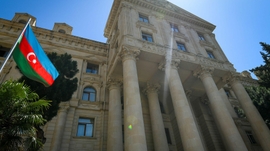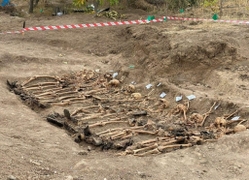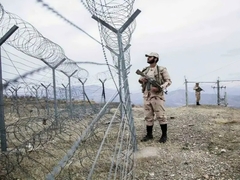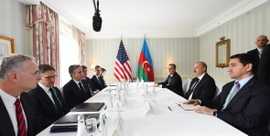Kazakhstan is prepared to act as a regional food supply hub in order to improve global food security, President Kassym-Jomart Tokayev said while addressing the 78th session of the UN General Assembly in New York.
The country has the required resources, infrastructure and logistics for this purpose, he added.
“My country, as the world’s seventh largest grain producer, is the breadbasket of Central Asia,” Tokayev said in his speech on Tuesday. “We are committed to utilizing this agricultural potential to fight global food insecurity.”
Kazakhstan boasts vast agricultural lands, covering approximately 202 million hectares, or 74 percent of the country’s land, making it one of the world's largest countries by agricultural land area. The country's favorable geography and varied climate create a conducive environment for grain cultivation.
Key grain-producing regions in the country include the northern areas like Kostanay, Akmola, and North Kazakhstan, while large-scale production also takes place in East Kazakhstan, Abai, and Pavlodar.
Kazakhstan is Central Asia’s largest grain producer, with the ability to export approximately half of its annual grain production. Wheat is the country’s largest crop by acreage, accounting for 80% of grain production, but it also produces barley, cotton, sunflower seeds, and rice. Kazakhstan takes the lead in flour exports, mainly shipping to other Central Asian nations and Afghanistan.
“Kazakhstan will continue to act as a reliable supplier of grain and other food-staples,” Tokayev said.
At the same time, the Kazakh president expressed the intention to enhance the country’s cooperation with the Islamic Food Security Organization, located in Kazakhstan, as well as UN agencies.
In his speech, Tokayev said that economic and political sanctions have become “a new norm” that erodes the supply chains that ensure food security, threatening millions, especially in vulnerable communities. These problems contribute to the mounting challenges of soaring inflation, job losses, and fears of a worldwide recession, especially for developing nations.
“It is imperative, in this connection, to exclude food and fertilizers from any sanctions and restrictions whatsoever,” Tokayev stressed.
The president also underscored the strategic significance of developing the transit and transport sector in the region, highlighting the potential pivotal role of the Trans-Caspian International Transport Route (TITR) in strengthening the interaction between the East and West.
The significance of the Trans-Caspian route has grown for Kazakhstan’s economic security, especially as exports through the Russian territory have become increasingly difficult due to the fallout of the war in Ukraine.
In 2022, President Tokayev underscored the importance of fully utilizing the potential of the TITR, also known as the Middle Corridor. This corridor stretches from China to Europe, passing through Central Asia and the South Caucasus.
The Middle Corridor has emerged as a critical trade route between Europe and Asia, offering considerable economic benefits and faster transit times for the landlocked countries in the region.
The primary maritime points on this route are the Baku International Sea Trade Port in Azerbaijan, the Aktau/Kuryk ports in Kazakhstan, and the Turkmenbashi Port in Turkmenistan. These ports promise significant gains for regional trade.
Compared to the Northern Corridor, the Middle Corridor provides a more cost-effective and faster trade route, reducing travel distance by 2,000 kilometers. Additionally, it benefits from more favorable climate conditions and reduces travel time by 15 days compared to sea routes. The Middle Corridor opens up immense opportunities for cargo traffic in Asia, enabling goods to reach the Middle East, North Africa, and the Mediterranean region by integrating port connections in Türkiye.


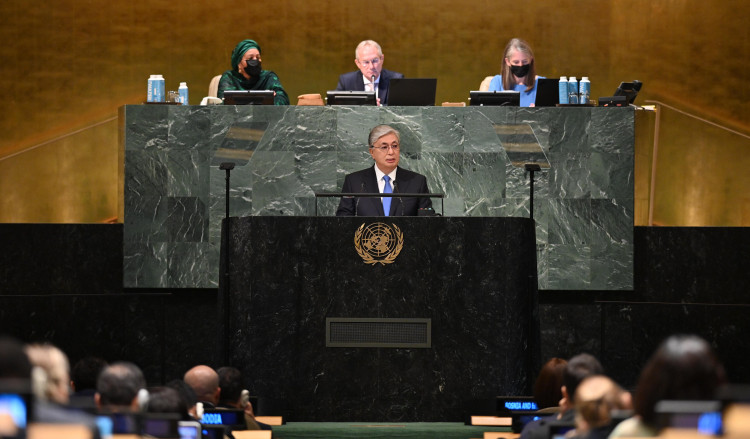




 U.S. Secretary of State Antony Blinken reiterated Washington’s unwavering support for the ongoing peace process between Azerbaijan and Armenia in a...
U.S. Secretary of State Antony Blinken reiterated Washington’s unwavering support for the ongoing peace process between Azerbaijan and Armenia in a...
 The Iranian and Cuban transport ministers have discussed expanding maritime and air transportation cooperation.
The Iranian and Cuban transport ministers have discussed expanding maritime and air transportation cooperation.
 Kyrgyzstan has joined the extensive reconstruction efforts in the Karabakh region of Azerbaijan, after a series of mega initiatives were launched b...
Kyrgyzstan has joined the extensive reconstruction efforts in the Karabakh region of Azerbaijan, after a series of mega initiatives were launched b...
 Iran is moving to fortify its eastern border with Afghanistan in a bid to fight illegal migration and drug trafficking, along with enhancing security.
Iran is moving to fortify its eastern border with Afghanistan in a bid to fight illegal migration and drug trafficking, along with enhancing security.
